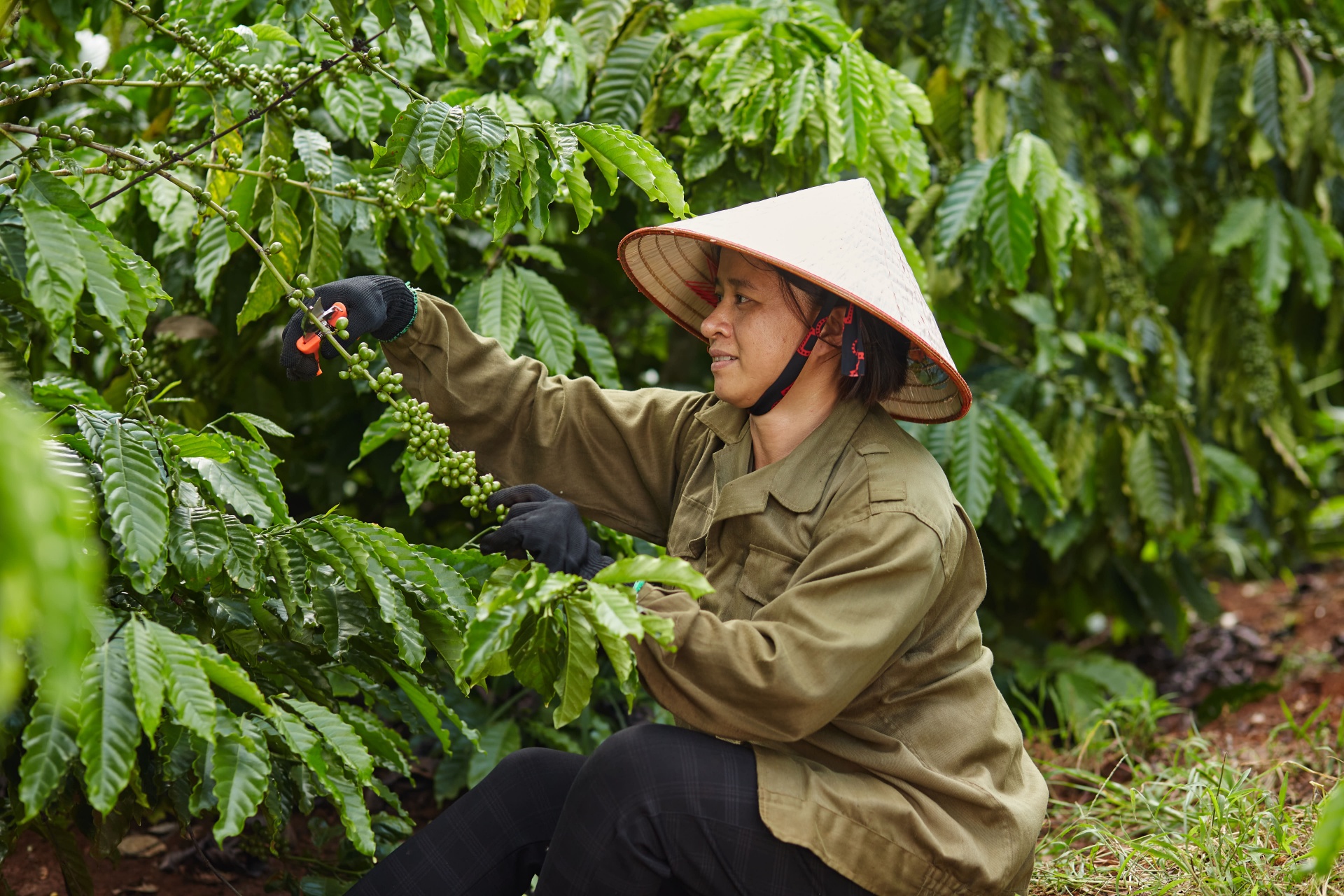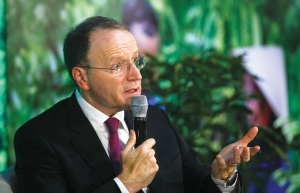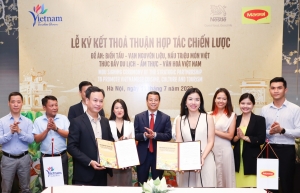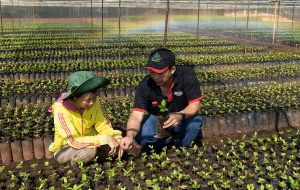Nestlé claims top spot in 2023 Coffee Brew Index
 |
This report recognises that Nestlé has a cohesive and comprehensive sustainability strategy, and that its policies, objectives, and actions incorporate social, environmental, and economic dimensions of coffee production. It also acknowledges Nestlé's dedicated investments to support its work.
David Rennie, Nestlé's head of Coffee Brands said, "This is recognition for our long-term commitment to sustainability. Through our flagship programmes, namely the Nescafé Plan and the Nespresso AAA Sustainable Quality drive, we are working every day with coffee farmers to help ensure that the farming and production of coffee is sustainable and socially and economically inclusive. We are committed to continuously progressing and bringing new approaches to sustainable coffee farming."
Since the inception of the Nescafé Plan in Vietnam in 2011, Nestlé has supported coffee farmers in making the transition towards regenerative and low-emission agriculture with initiatives to improve soil quality, conserve water, and increase biodiversity. The improved soil quality will contribute to carbon sequestration and climate change resistance.
Through the Nescafé Plan, Nestlé's agronomists have shared initiatives and techniques that are easy to apply. As a result, they have helped farmers reduce the amount of coffee integrated water by 40-60 per cent, and the amount of fertiliser by 20 per cent, while still ensuring crop quality and yield.
Since 2022, the majority of farmers under the Nescafé Plan have used microbial fertilisers on their plants, and about 86 per cent of coffee gardens have diversified crops, with an average of three different varieties. Thanks to this, farmers' incomes have improved by 30-100 per cent.
In particular, the plan also supports farmers in applying digital transformation to garden management, as well as sustainable farming practices. With the Digital Farmer Field Book, they can effectively manage inputs such as water and fertiliser, contributing to the reduction of carbon emissions for each kilogram of harvested coffee.
With the Nescafé Plan operating across the globe, it will contribute to Nestlé’s commitment to halve greenhouse gas emissions by 2030 and reach net-zero by 2050.
By 2025, Nestlé will also purchase all of its coffee from sustainable farming sources. Among them, 20 per cent will be purchased from regenerative farming practices, and this rate will increase to 50 per cent by 2030.
The 2023 Coffee Brew Index is supported by Solidaridad and Conservation International and is coordinated by Ethos Agriculture. It has been published for the first time in the Coffee Barometer's biennial report and analyses the sustainability strategy of the world's top 11 roasters.
 | Nestlé’s regenerative agriculture commitment Nestlé Vietnam signed an agreement with the Vietnamese Ministry of Agriculture and Rural Development in June to encourage the country’s transition to regenerative and low-emission agriculture and help the country move towards sustainable agriculture and achieve its 2050 net-zero targets. VIR’s Bich Ngoc talked with Mark Schneider, CEO of Nestlé Group, about the strategies required to carry this out. |
 | Nestlé aims to promote over 50,000 Vietnamese dishes Nestlé Vietnam's Maggi brand has signed an MoU with the Tourism Information Centre and the Vietnam National Administration of Tourism (VNAT) to carry out activities that will promote tourism to Vietnam with a focus on the country's unique cuisine from now until 2026. |
 | Nestle valued at $22.4 billion, named world’s most valuable food brand Nestlé once again earns the title of the world’s most valuable food brand with a brand value of $22.4 billion, according to a new report from leading brand valuation consultancy, Brand Finance. |
What the stars mean:
★ Poor ★ ★ Promising ★★★ Good ★★★★ Very good ★★★★★ Exceptional
Related Contents
Latest News
More News
- Trung Nam-Sideros River consortium wins bid for LNG venture (January 30, 2026 | 11:16)
- Vietnam moves towards market-based fuel management with E10 rollout (January 30, 2026 | 11:10)
- Envision Energy, REE Group partner on 128MW wind projects (January 30, 2026 | 10:58)
- Vingroup consults on carbon credits for electric vehicle charging network (January 28, 2026 | 11:04)
- Bac Ai Pumped Storage Hydropower Plant to enter peak construction phase (January 27, 2026 | 08:00)
- ASEAN could scale up sustainable aviation fuel by 2050 (January 24, 2026 | 10:19)
- 64,000 hectares of sea allocated for offshore wind surveys (January 22, 2026 | 20:23)
- EVN secures financing for Quang Trach II LNG power plant (January 17, 2026 | 15:55)
- PC1 teams up with DENZAI on regional wind projects (January 16, 2026 | 21:18)
- Innovation and ESG practices drive green transition in the digital era (January 16, 2026 | 16:51)

 Tag:
Tag:




















 Mobile Version
Mobile Version